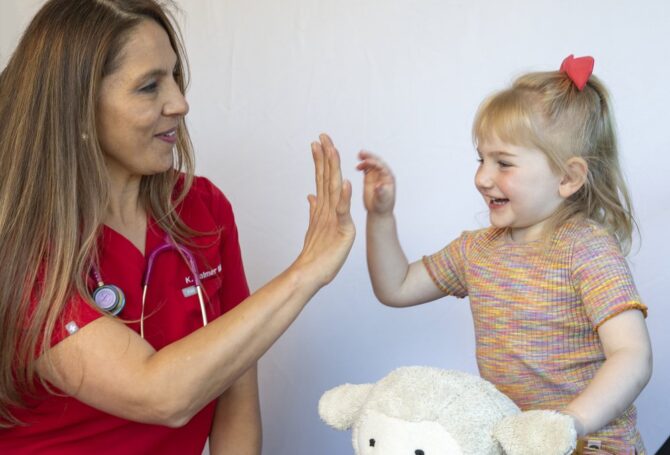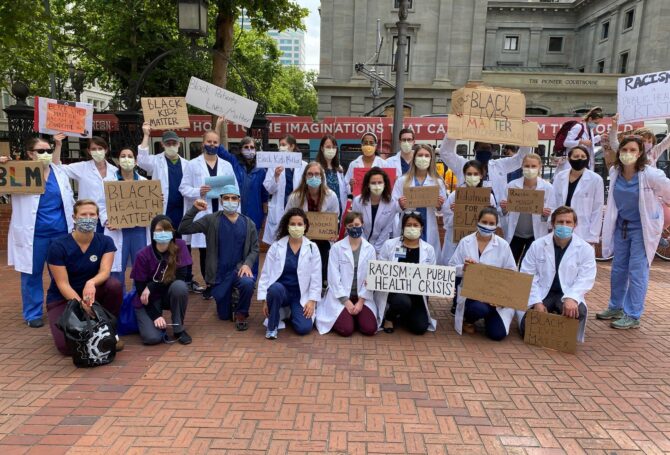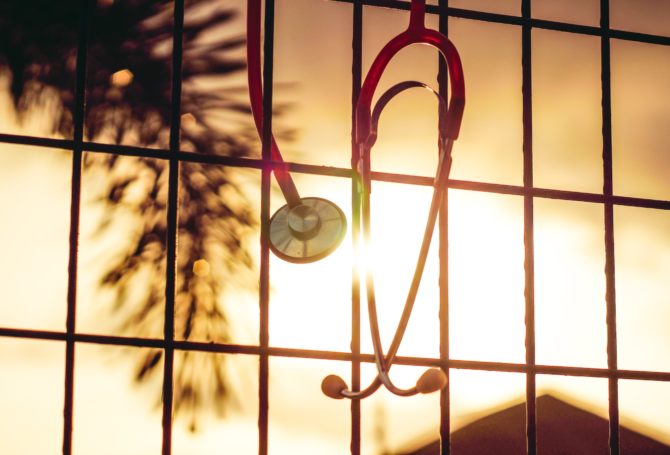December 29, 2020
Originally published in The Oregonian on December 20, 2020
Oregon children and parents are in crisis. Every day as a pediatrician, I see the negative impact that closing schools to in-person instruction has had on learning, child well-being and family mental health. My husband, a middle school teacher, has also seen how distance learning has magnified challenges for students, even despite working harder than ever before. We need to reverse this catastrophic choice to keep kids at home by ensuring the health and safety of our teachers for in-person education.
The best way to do that? Prioritize teachers for the COVID-19 vaccine. The Oregon Health Authority counts teachers among essential workers who will receive the vaccine ahead of the general population but behind health care workers and residents of long-term care facilities. However, the state has yet to specify exactly where on that large list of essential workers teachers will fall. The dire circumstances that I see call for recognizing and treating teachers as the frontline workers that they are and prioritizing them in that group.
This year, I have referred more patients and their parents to mental health, food, and housing resources than ever in my career. Children are lonely, gaining weight and refusing to log on to kindergarten. Teens are depressed and less motivated to learn. Parents are burning out.
My patients include a fourth-grader with complex medical needs who previously loved school. Without education specialists helping her, she ends each day in tears, defeated. One pre-teen I treat has gained 45 pounds, unable to leave the house due to his mother’s medical risks. A second-grade patient logs on each day, but his parents, who do not speak English, struggle to help him. Another elementary student I treat is houseless, isolated from online classes as his evicted family shelters in a hotel with no Internet access.
Teachers have always been frontline workers. They provide safety, shelter, food, education and support to children who come into school with needs that go beyond educational instruction.
Today they are working more hours than ever trying to meet the needs of their students. Their creativity, ingenuity, and sheer grit is beyond admirable and their commitment unwavering.
But distance learning cannot replace the non-academic supports and critical student-teacher relationships within the classroom. Rates of hunger are rising as schools struggle to distribute meals outside the school walls. Abuse and neglect reports have gone down without teachers looking out for at-risk children. Social isolation from peers is hurting child development, self-esteem, and academic achievement.
We have learned a lot since March: children are less likely to get sick, they are not super spreaders (particularly those under 12), and daycares across the country have remained open with limited outbreaks. We have the tools to reopen schools safely, especially for children with the greatest need.
Vaccinating teachers, as frontline workers, will be a huge first step.
Second, teachers should be protected: infuse schools with funding for personal protective equipment, implementation of health protocols, hiring of support staff and hazard pay for in-person instruction.
Third, we should prioritize opening the doors for children with special education needs who need in-person, tailored support for learning, development and overall child well-being.
Finally, schools cannot assume what families need. They should reach out to families of color and children living in poverty. Ask parents what they need, their COVID-19 risk and get creative to meet their needs.
The Great Recession highlighted the lasting impact of economic instability on children. Without the social safety net of schools, the consequences of COVID-19 on children will pale in comparison. The COVID-19 vaccine provides an opportunity for us to do right by kids: put teachers first among essential workers in the vaccine plan.
Continuing distance learning is to ignore the facts: children are suffering, and they need to go back to school. When will we, like other countries, be willing to prioritize kids? It is not a matter of how, but whether we, as Oregonians, are willing.
OPS Member Jaime Peterson, MD, MPH, is a pediatrician and assistant professor of pediatrics at Oregon Health & Science University.



